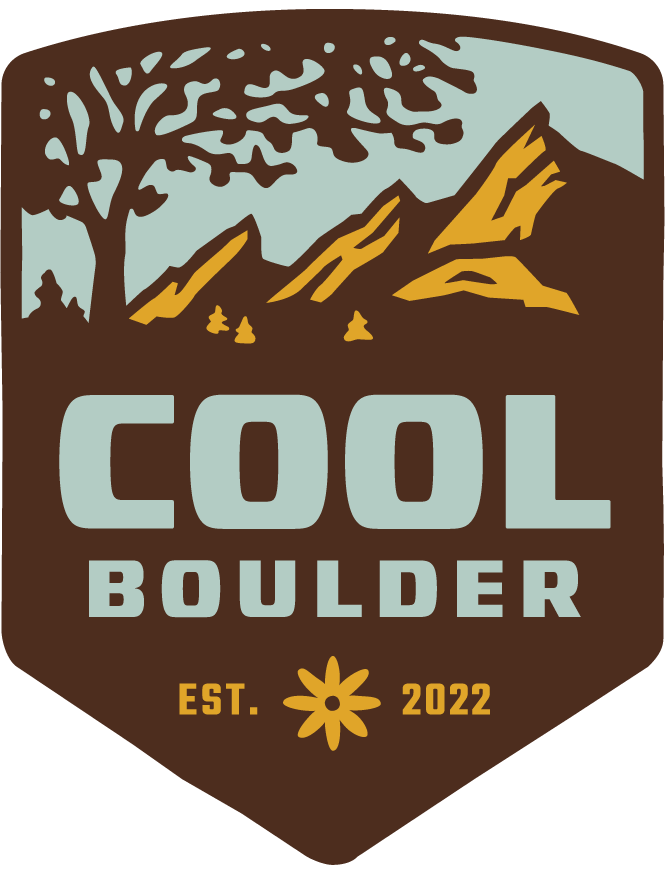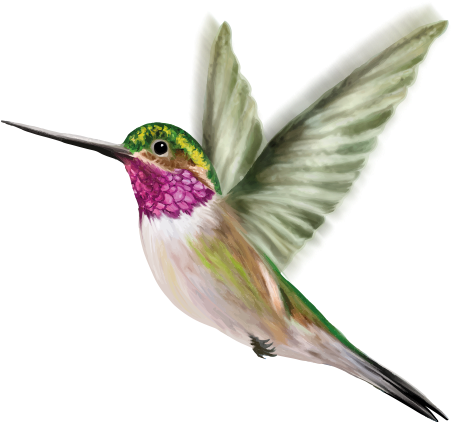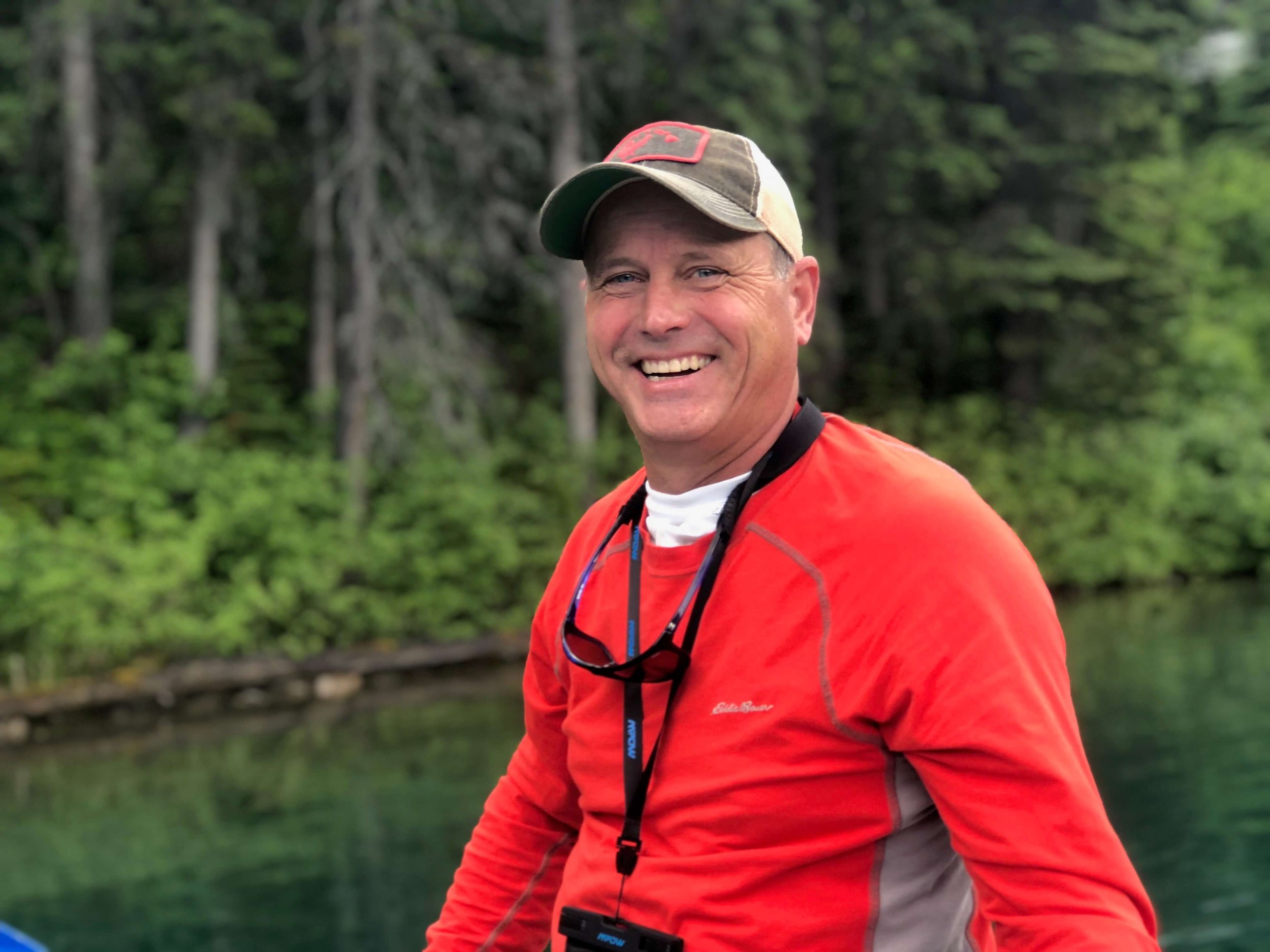Apply in 2026 to Join the Pollinator Advocate Team!
The Pollinator Advocates program was launched in 2022, and has successfully trained three graduating classes. Over 50 Pollinator Advocates are now making change in their communities and neighborhoods across Boulder County! The program is taking a hiatus for 2025, focusing on continuing education and engagement.
Please subscribe to the Cool Boulder Action Alert and check our calendar for ways to get involved!
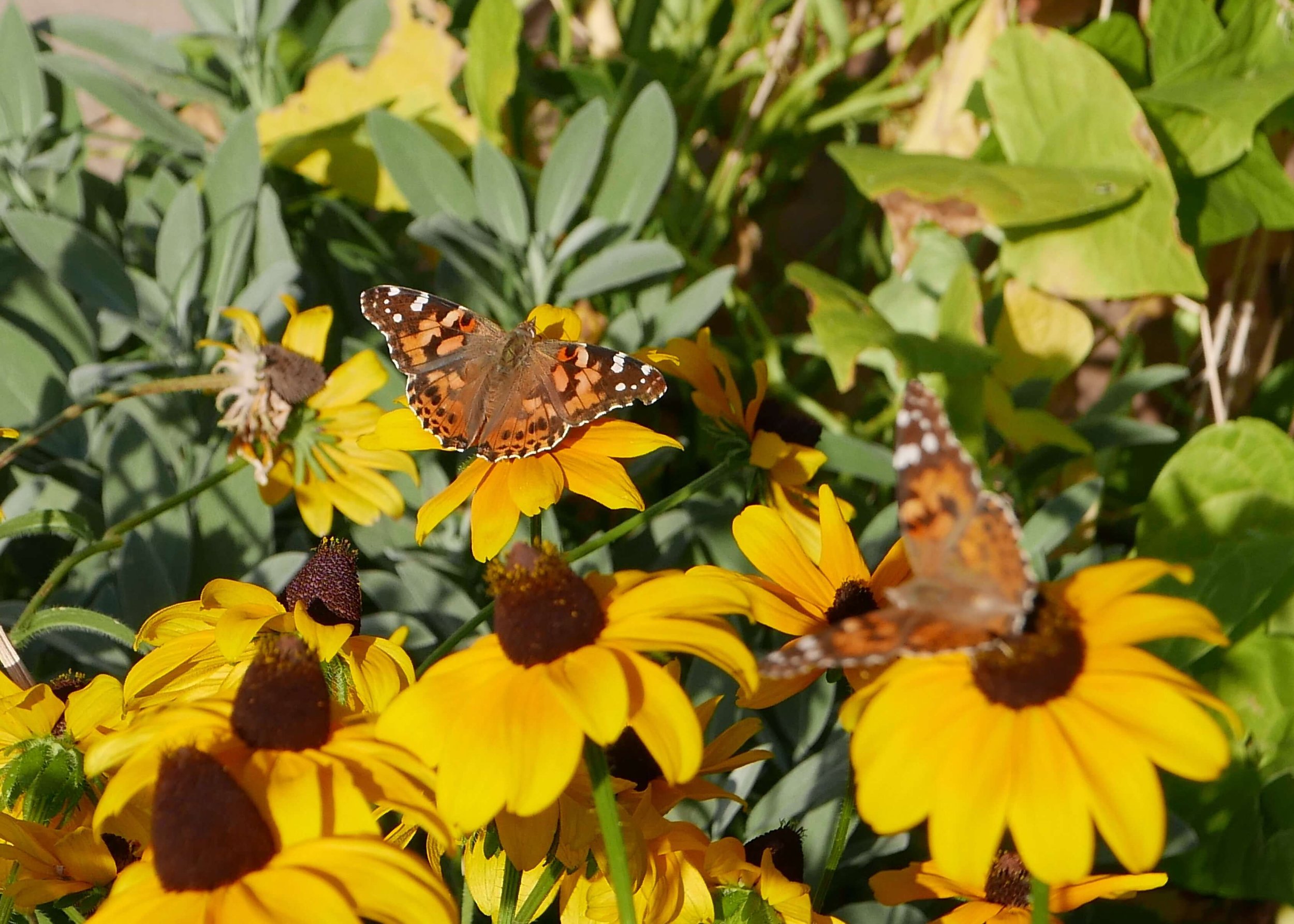
Who are Pollinator Advocates?
The Pollinator Advocate Program is a unique shared educational experience with broad ecological, historical, and social perspectives that recognizes and celebrates the inseparable connection between ecosystems and people.
You begin your journey to become a Pollinator Advocate (PA) by participating in this FREE immersive training program that is designed to enhance your knowledge about how to build safe and healthy spaces where pollinators can thrive. After becoming certified as a Pollinator Advocate, you will be seen as a leader and trusted ambassador for pollinators across all of our communities.




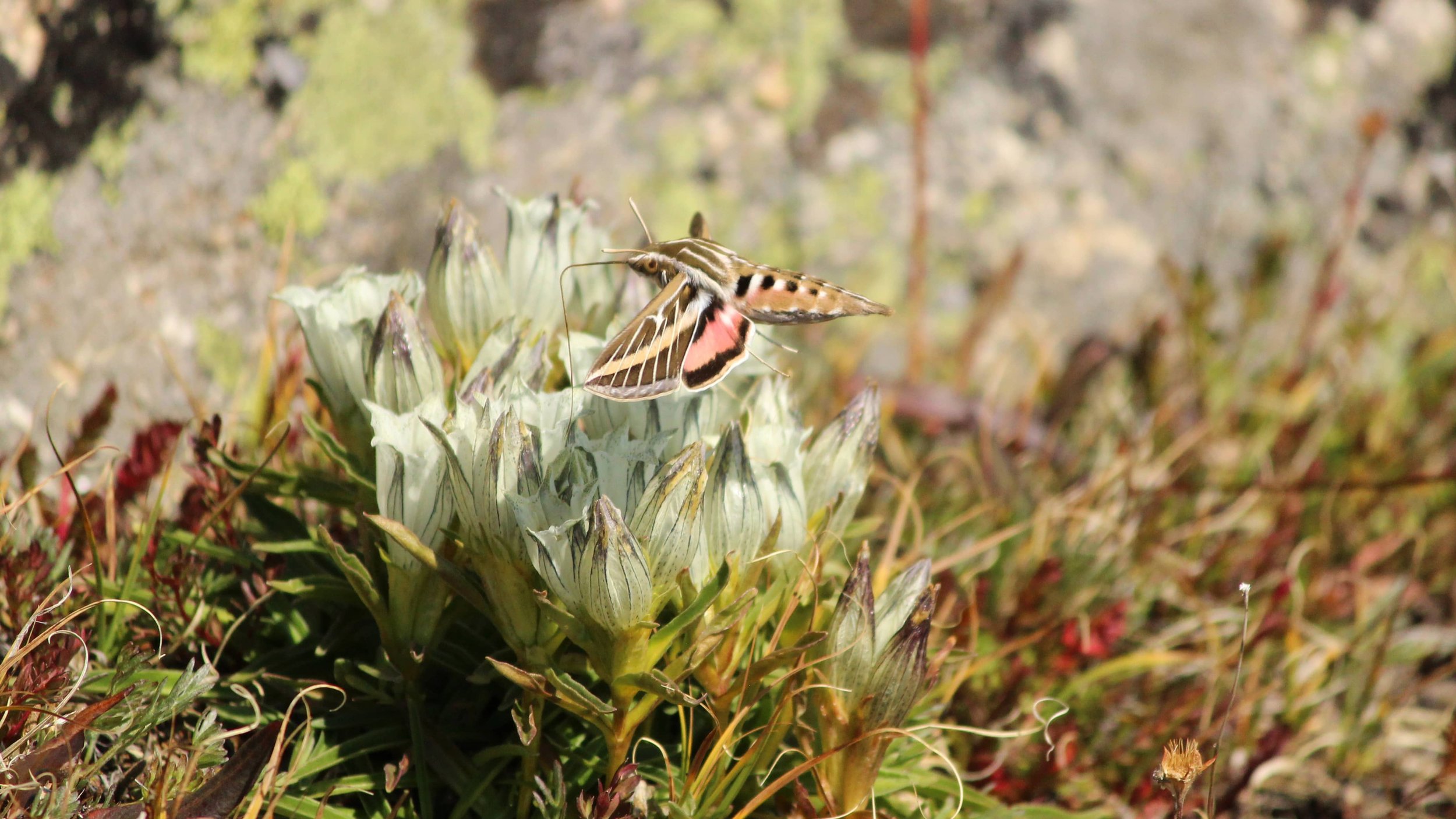
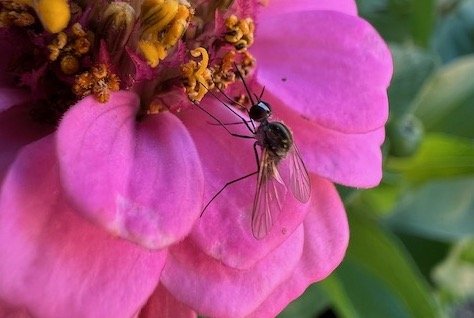
Pollinator Advocate Training
Who Should Apply
Boulder area community members (18 years or older) with all levels of experience growing plants, including beginners, are encouraged to apply. Beginners will be asked to watch recommended videos to gain foundational knowledge prior to the start date of the course. We are looking for folks with a strong interest and willingness to learn about biodiversity, pollinators and their needs, as well as collective actions to combat climate change. Note: although some of the teachers are bilingual, PA training is not offered as a bilingual program at this time.
Special Perks to Celebrate Course Completion
Upon graduation from this course, you will receive a Pollinator Advocate Certificate, and you will shop with your classmates for organic plants at Harlequin’s Gardens to create a native plant palette for your own space. You will then be part of a trained team of pollinator habitat experts, sharing your knowledge across your communities.
Meet Our World-Class Instructor Team
-

Andrea Montoya
Pollinator Advocates Founder & Lead Instructor
Andrea is the creator and director of the Pollinator Advocate program. After a long career as a Physician Associate in Oncology and Rheumatology—where she both worked with patients and taught—Andrea dove into Ecological Sciences when she learned about the drastic loss of native bees and other insects, due in large part to their loss of natural habitat. With a strong history of community organizing in her back pocket—in both the Mexican-Indigenous rights movements and Environmental Movement—Andrea rallied neighbors to build native habitats in local, public spaces and initiated the Pollinator Corridor in the Goss-Grove neighborhood in early 2018. She trained with many local experts in native plant gardening, as well as horticulturalists and other gardening experts to design habitats. She also took courses in Entomology and EBIO at CU Boulder and is completing her Colorado Native Plant Master certification. Many of these mentors and teachers are now part of the PA training.
Last, but far from least, she is a mother of two amazing daughters and is head over heels in love with her 3 grandchildren. She and her husband love gardening together.
-

Dr. Adrian Carper
Community Ecologist & Pollinator Expert
Adrian is a community ecologist and has studied insects (primarily pollinators), their natural history, and ecology for nearly two decades. In the Dept. of Ecology and Evolutionary Biology at CU Boulder he focuses on butterflies and the impacts of exotic plants on the chemical ecology of multitrophic interactions. Through the Museum of Natural History Entomology Section, he focuses on the impacts of human land-use on wild bee community ecology and conservation. He is also an expert on the shared stressors and cobenefits affecting wild bee and honeybee populations.
-
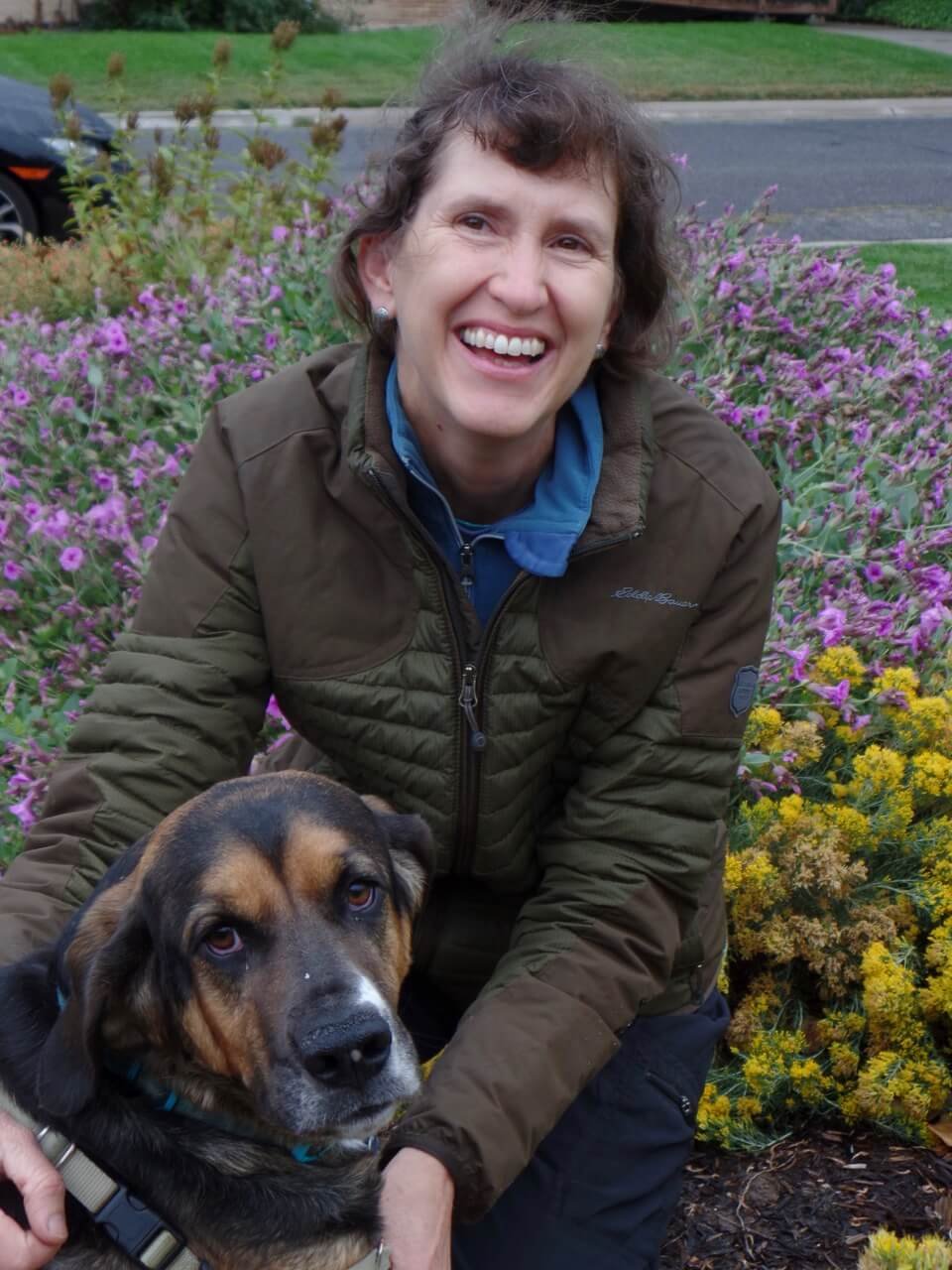
Amy Yarger
Entomologist & Director of Horticulture for Butterfly Pavilion
Amy has been with Butterfly Pavilion for over 20 years and currently leads their local pollinator habitat initiatives, such as the Baseline Pollinator District and the Urban Prairies Project, which restores habitat in urban and suburban green spaces in Westminster and Broomfield. Amy has also installed pollinator habitat gardens throughout the community at locations such as Sprout City Farms, Clear Creek Valley Park, and Good Samaritan Hospital. Her articles have been published in Colorado Gardener, Aquilegia, and the journal of the Association for Zoological Horticulture. Through habitat gardening and education, Amy connects people to nature and gives them a deeper understanding of the need for biodiversity both locally and globally.
-

Andrea Yoloteotl Nawage
Chief Executive Director of Harvest of All First Nations
Andrea Yoloteotl Nawage likes to continue creating opportunities for reparations towards Indigenous and BIPOC communities. Andrea, currently graduated with an Environmental Studies degree at Naropa University, focused on environmental and social justice on behalf of our planet. Additionally, she graduated with a minor in Peace Studies, Food Justice along with a Permaculture Design Certificate. She is originally Indigenous from Mexico, and she has become passionate about creating social justice and equity for people. She is the Chief Executive Director, and Founder the non-profit Harvest of All First Nations (HAFN), an Indigenous-led collaborative empowering communities through projects and education, which is focused on Indigenous-led reparations, rematriation & Earth based Decolonization for the benefit of BIPOC peoples for cultural enrichment & health equity .HAFN was able to host the first annual Corn Festival in Boulder County, focused on Land Back, Indigenous leadership and regenerative agriculture. Her cultural, ceremonial and ongoing community background has helped to offer an opportunity for generation healing for the next generations including my children. HAFN’s focuses on reclaiming Indigenous ways of governance models within the non- profit world and societies so it could be adapted to help break patriarchal colonialistic systems.
-

Reshawn Edison
Indigenous Relations Consultant
At Harvest of All First Nations, Reshawn Edison Serves as the Cultural Education and Environmental Justice Program Coordinator and as an Indigenous Relations Consultant. He is a dedicated Anthropologist rewriting narratives with an Indigenous worldview, and actively challenging Settler power structures.
-

Amy Scanes-Wolf
Amy has a colorful decade-long background in market farming, ecological landscaping, horticulture, historical interpretation, running educational programming, writing, and agricultural research. Amy is deeply passionate about creating pathways to reconnect people to their ecosystems and food systems. She is currently the Executive Director of High Plains Permaculture, the Agroecology Incubator Program Manager with Drylands Agroecology Research, and a teacher with Boulder Permaculture.
-
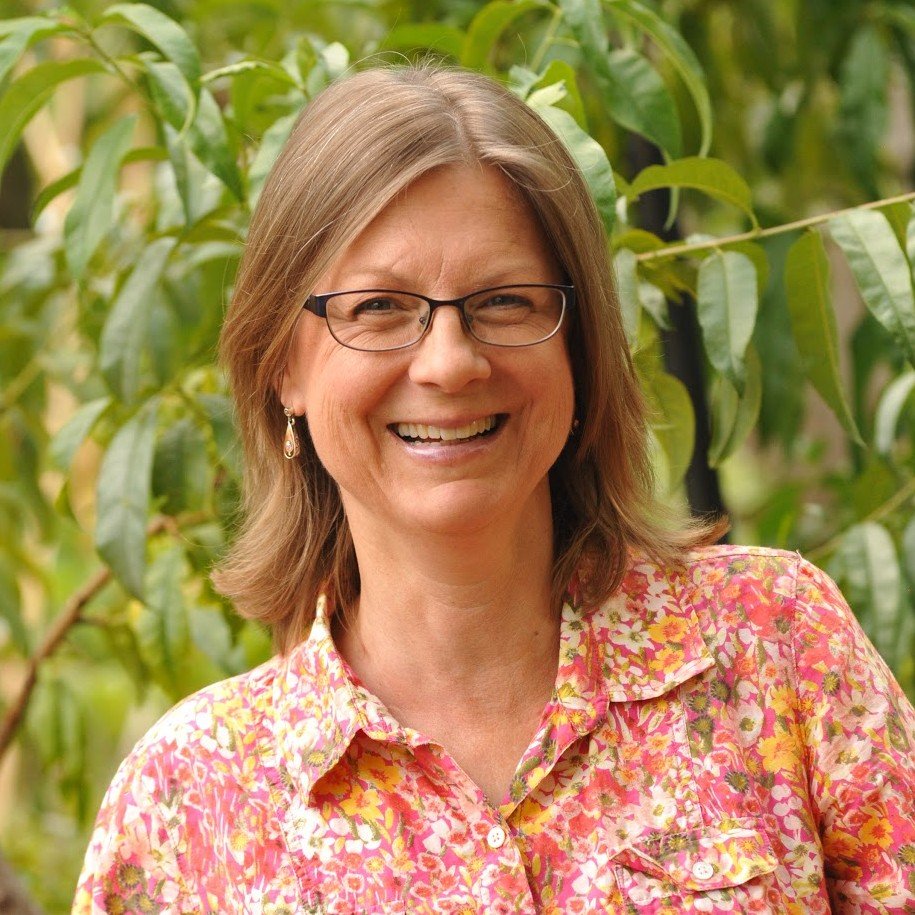
Christine Gust
Soil Technician and Microbe Ambassador
Christine Gust works with local farmers and gardeners to improve soil and the health of plants by focusing on building the soil microbial community. She incorporates water harvesting techniques in projects, including a large native plant demonstration garden in downtown Denver. She is an active member of the Wild Ones, which empowers residents to plant and promote native Coloradoscapes for a climate-resilient future. She is also a soil mentor for GoFarm, a nonprofit that helps beginning farmers start or expand their own farm, has a permaculture design certification, and worked at Harlequin’s Gardens Wholesale for several years.
-
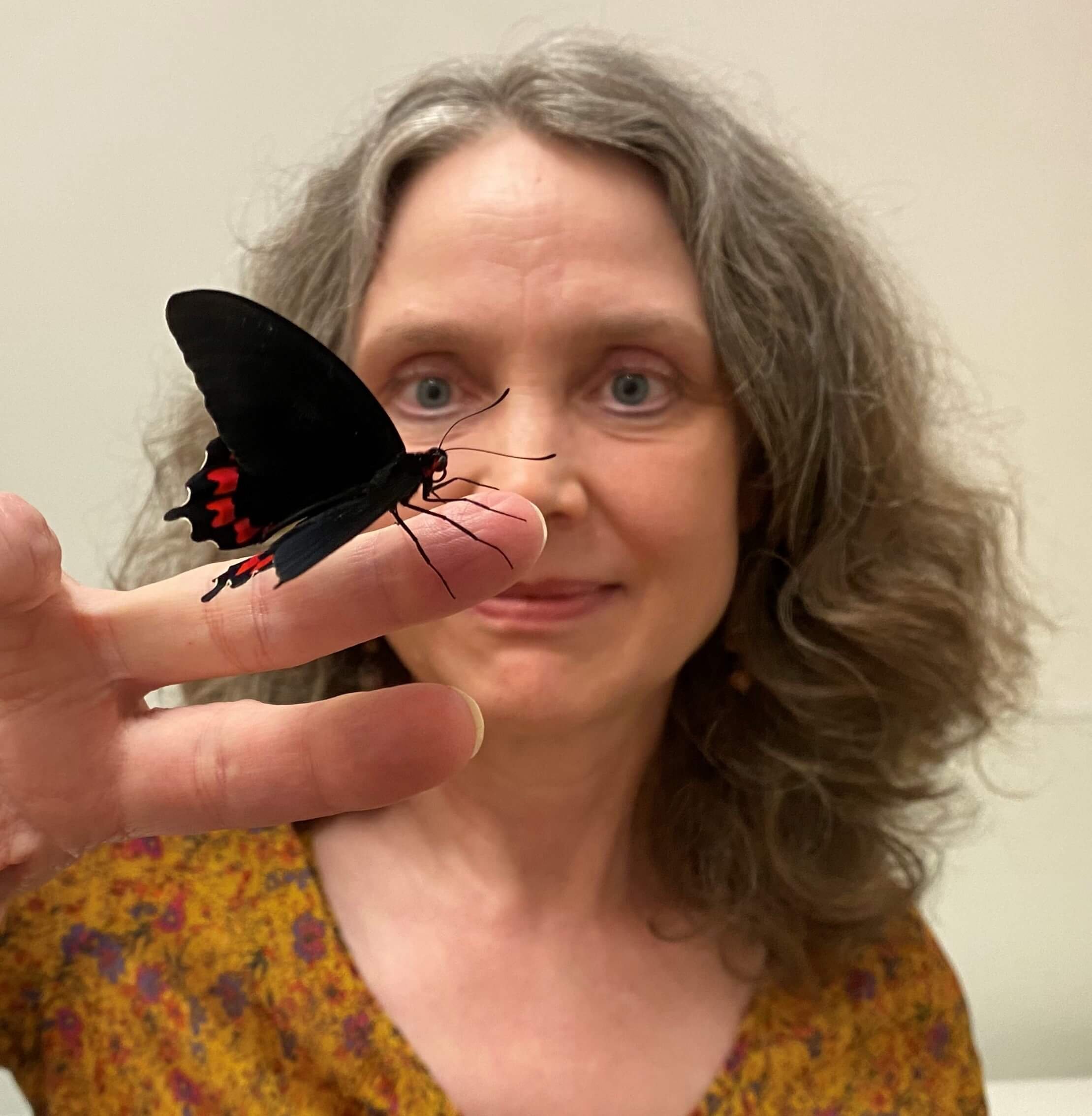
Dr. Rella Abernathy
Entomologist, Ecologist, Pesticide Expert
Rella is the biodiversity lead for the Natural Based Climate Solutions Division of the City of Boulder Climate Initiatives Department. She leads urban pollinator programs for the Cool Boulder initiative, a partnership between the city, universities, NGOs, businesses, community members, and others working together to equitably and inclusively transition conventional landscaping to habitats that support insects, birds and other wildlife.
-
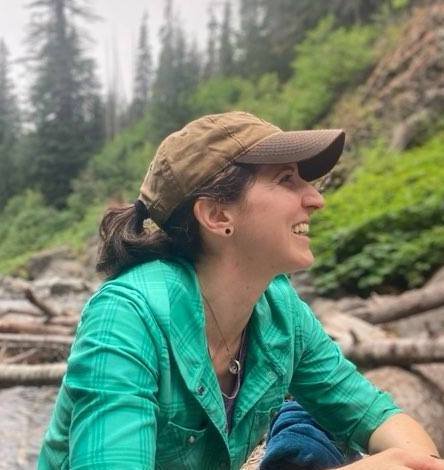
Heather Bearnes-Loza
Cool Boulder Senior Program Manager
Heather Bearnes-Loza is an environmental scientist and program manager on the Natural Climate Solutions Team for the City of Boulder Colorado’s Climate Initiatives Department, and she provides coordinating capacity for the Cool Boulder initiative. Her primarily background is in water quality monitoring and assessment across riverine and lake ecosystems in the Midwest and stormwater quality and municipal stormwater projects in the state of Washington. Heather is passionate about connecting people to seeing and working with the water we have to increase biodiversity and resiliency in the face of a changing climate.
-
Steve Armstead
Lepidopterist & Pollinator Conservation Specialist
After retiring from his post as Deputy Director of Open Space and Mountain Parks for the City of Boulder, Steve joined the Xerces Society as their Pollinator Conservation and Nature-Based Climate Solutions Specialist for Colorado. He works closely with the City and other partners on efforts to coordinate, manage and build high-quality, connected, climate-resilient pollinator habitat in the Boulder, Denver, and Fort Collins areas. Steve is exploring ways to expand and leverage support for pollinator conservation and climate solution efforts throughout the region. Steve holds a Master’s Degree in Museum and Field Studies focusing on Entomology from the University of Colorado at Boulder, where he surveyed and established a system to monitor butterflies across local natural areas. He also tends to a myriad of pollinators and a few horses at his home habitat.
-
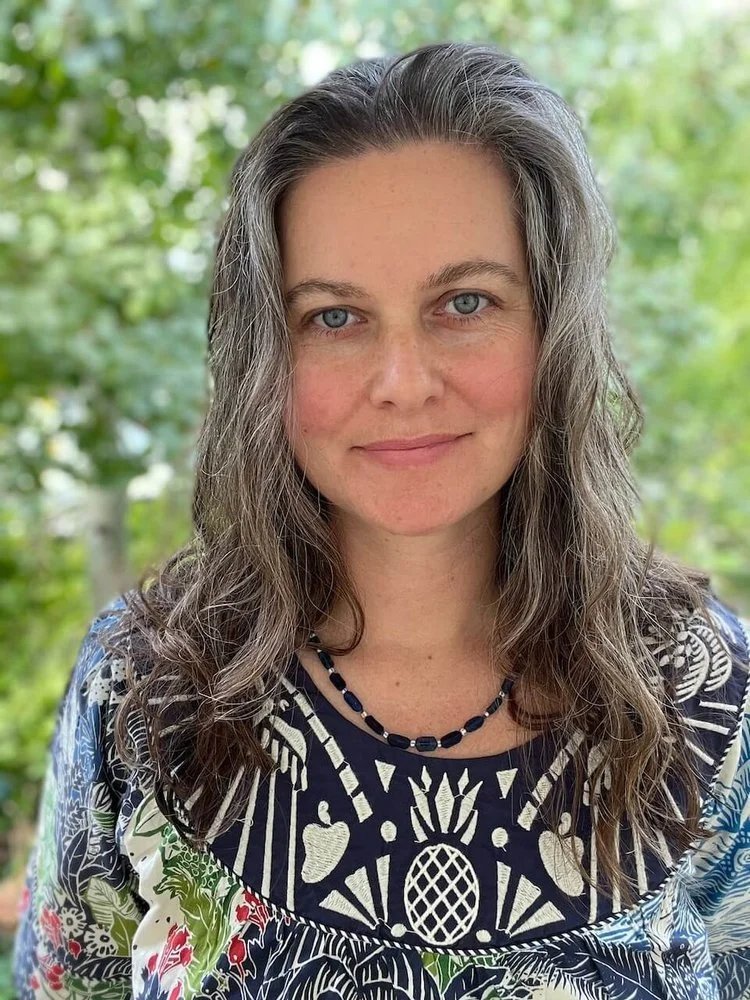
Emily KenCairn
Community Organizer & Pollinator Advocate
Emily is the Director of Development & Communications at People & Pollinators Action Network and is completing her Colorado Native Plant Master certification this year. She tends a pesticide-free home habitat with over 100 species of plants as well as a large school demonstration garden in her hometown of Boulder, CO. She is a co-founding partner of Cool Boulder and co-hosts the Root Solutions Network, PPAN’s online community. An artist, writer, mother, folk herbalist, and devoted tender of the Earth, Emily works toward a world where both humans and our more-than-human kin thrive in perpetuity.
-

Scott Severs
Hummingbird & Dragonfly Expert
A graduate of Colorado State University, Scott is helping the City of Longmont achieve its stated goal of living in harmony with wildlife and pollinators on city open spaces and nature areas. Scott is a frequent contributor to the KGNU Nature Almanac radio show and co-author of the online Boulder Nature Almanac column. He has taught dragonfly and bird courses for Boulder County Nature Association and others for many years.
-
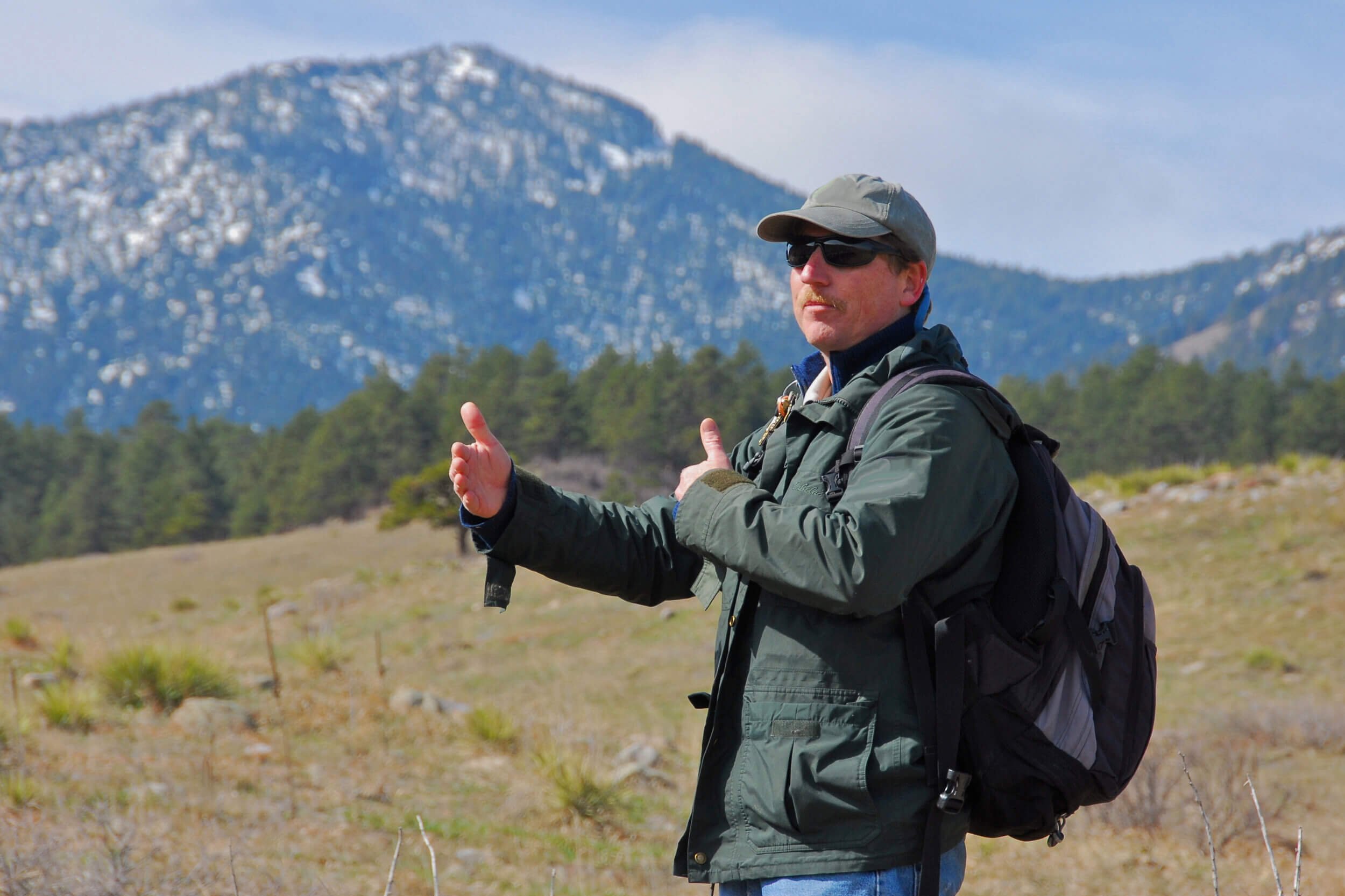
Dave Sutherland
Field Naturalist & Habitat Creation Mentor
Dave is an award-winning field naturalist, now retired from the city of Boulder’s Open Space and Mountain Parks (OSMP) department. In addition to over 25 years working in the Boulder area, Dave has led outdoor education programs in California, Idaho and Costa Rica, and has trained guides in the Galapagos Islands.
Dave is also fluent in Spanish and leads nature hikes and programs for Boulder’s Hispanic community. His home habitat/native plant demonstration garden is the envy of all of us plant and pollinator nerds.
